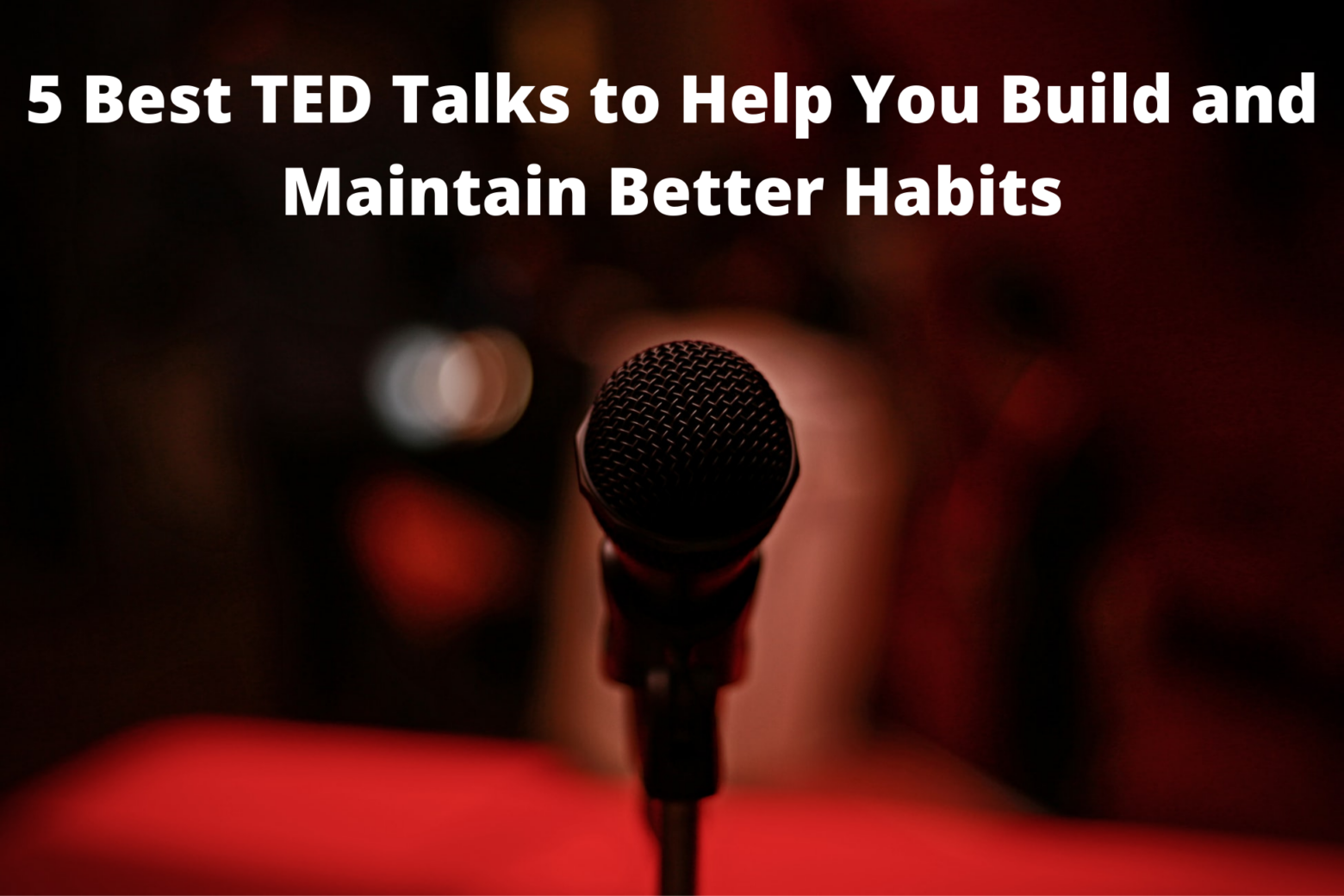Watching TED talks have an amazing impact on most people. They are filled with the adrenaline rush of wanting to make an immediate change in their lives right away.
If you are a fan of watching TED talks and are trying to build better habits, this post is just for you. It discusses five TED talks that are powerful enough to help you build new habits and get rid of bad ones.
1. Judson Brewer: “A Simple Way to Break a Habit”
Length: 9 min. 24 sec.
Target: Learn to give up a bad habit.
Psychiatrist Judson Brewer talks about how we can break bad habits by being more curious about them. In this TED talk, Brewer explores the relationship between mindfulness and addiction and discusses how we can break away from the things we do even though we know they’re bad for us by being curious about them.
In an example, Brewer asked the people in his lab to be mindful about their breath while smoking. The participants weren’t forced to stop smoking, rather, they were asked to describe how their breath tastes and feels. Earlier, even though they knew cognitively that smoking was bad for them, being mindful about its impact on their breath made them feel revulsed.
One participant even commented, “Mindful smoking: smells like stinky cheese and tastes like chemicals, YUCK!”
“This is what mindfulness is all about: Seeing really clearly what we get when we get caught up in our behaviors, becoming disenchanted on a visceral level and from this disenchanted stance, naturally letting go.” — Judson Brewer
2. Christine Carter: “The 1-Minute Secret to Forming A New Habit”
Length: 10 min. 56 sec.
Target: Building new habits.
Most of us have struggled with starting a new resolution and being high on motivation. Later, the motivation runs out and we’re left struggling with reasons to stick with our new habit. In this talk, Sociologist Christine Carter shares a simple step to shift your mindset and help you stay on track to achieving your grandest ambitions.
In this talk, Christine Carter shares that motivation or energy aren’t the only things needed to build a habit that lasts. You don’t need extreme talent. You need only to be willing to do something that is terribly small and to remember that to keep doing it is better than nothing.
“When we abandon our grand plans and great ambitions in favor of taking that first step, we shift. And paradoxically, it’s only in that tiny shift that our grand plans and great ambitions are truly born.” — Christine Carter
3. Matt Cutts: “Try Something New For 30 Days”
Length: 3 min. 27 sec.
Target: Building a new habit.
If there is something you always wanted to do, but just couldn’t find the motivation to start, Matt Cutts, an early employee at Google has a simple suggestion: Try it for 30 days.
In this talk, Matt Cutts suggests that instead of waiting for the perfect moment, we should just start and stick with any new habit we are trying to build for at least 30 days. Armed with the knowledge that these 30 days are going to pass whether you like it or not, holding on to your resolution will become much easier.
“I learned that when I made small, sustainable changes, things I could keep doing, they were more likely to stick. There’s nothing wrong with big, crazy challenges. In fact, they’re a ton of fun. But they’re less likely to stick.” — Matt Cutts
4. Shlomo Benartzi: “Saving for Tomorrow, Tomorrow”
Length: 17 min, 29 sec.
Target: Start saving money today.
It’s easy to convince ourselves that we will start saving money next week, but how about starting right now, even when our instinct is to spend it. In this talk, Economist Shlomo Benartzi says this is one of the biggest obstacles to saving enough for retirement and presents a solution on how we can flip this behavioral challenge into a behavioral solution.
“Self-control is not a problem in the future. It’s only a problem now.” — Shlomo Benartzi
5. Dean Ornish: “Your Genes Are Not Your Fate”
Length: 3 min. 12 sec.
Target: Change your genetics by adopting healthy lifestyle habits.
Dean Ornish, a clinical professor at UCSF and founder of the Preventive Medicine Research Institute shares how adopting healthy lifestyle habits can affect a person at a genetic level. He gives an example that when you live healthier, eat better, exercise, and love more, your brain cells actually increase.
The speaker is a leading expert on fighting illness — particularly heart disease with dietary and lifestyle changes, and his expertise shines through the length of this short, but impactful talk.
“Our genes are not our fate, and if we make these changes — they’re a predisposition — but if we make bigger changes than we might have made otherwise, we can actually change how our genes are expressed.” — Dean Ornish
